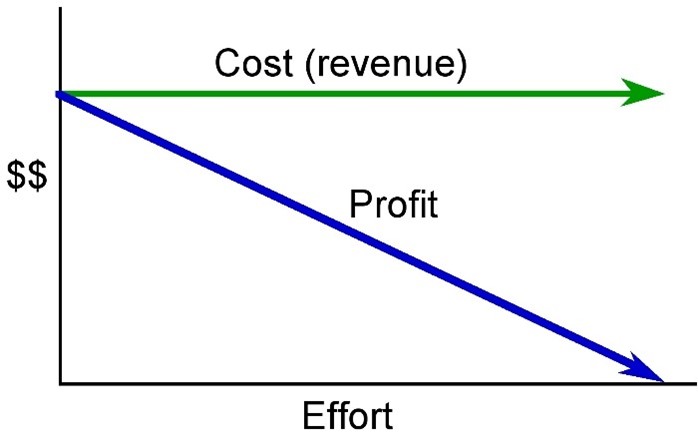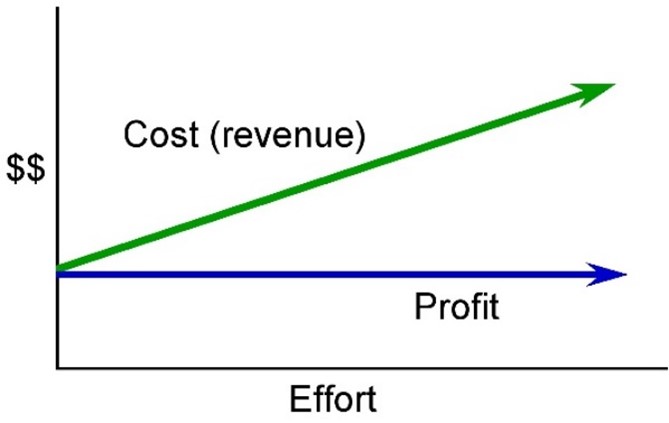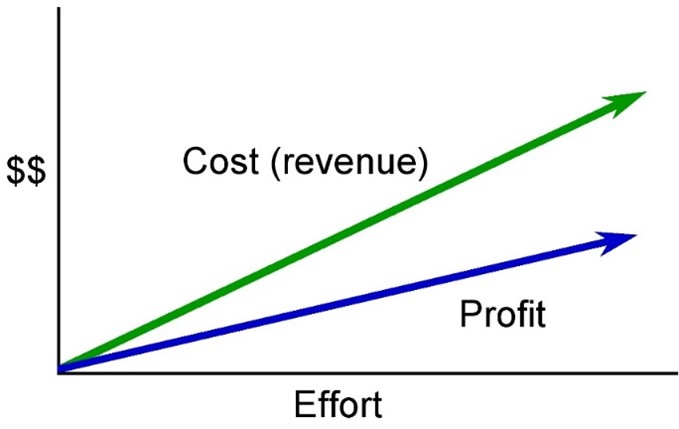Chapter 9. Budget and Procurement
9.6 Project Procurement Management
The procurement effort on projects varies widely and depends on the type of project. The “procurement cycle” reflects all procurement-related activities from when the decision is made to outsource equipment through to the payment of bills and closing of procurement contracts.
In less complex projects, the project team performs the work associated with procurement management. The procurement cycle includes:
- Identifying the required materials, equipment, and supplies
- Identifying the potential vendors
- Preparing requests for quotes (RFQs) and requests for proposals (RFPs), which include product/service specifications and a detailed delivery schedule
- Evaluating RFQs and RFPs to select the most suitable vendors
- Awarding and signing contracts
- Administering the contract and monitoring vendors’ performance
- Managing contract changes
- Closing out the contract upon work completion
On more complex projects, procurement professionals may be assigned to assist the team throughout the project’s lifetime.
9.6.1 Procurement Management Plan
In order to manage the process effectively and efficiently, we need to plan as we did for all the other knowledge areas (i.e., scope, schedule, cost, stakeholders, communication, resources). Therefore, we need to prepare a procurement management plan to document project procurement decisions, specify the approach, and identify potential sellers[1]. We need to think about all of the work that we will contract out before doing anything else. We will want to plan for any purchases and acquisitions. Here’s where we take a close look at our needs, to be sure that we need to create a contract. Therefore, we should figure out what kinds of contracts make sense for our project, and we try to define all of the parts of our project that will be contracted out. We work out how we manage contracts, what metrics contracts should meet to be considered successful, how we will pick a seller, and how we will administer the contract once the work is happening.
The procurement management plan details how the procurement process will be managed. It can include the following information:
- Roles and responsibilities of the project team and procurement professionals
- The types of contracts we plan to use, and any metrics that will be used to measure the contractor’s performance.
- The planned delivery dates for the work or products we are contracting.
- The organization’s standard procurement documents and processes that our project must use and comply with.
- How many vendors or contractors are involved and how they will be managed.
- How purchasing may impact the constraints and assumptions of the project plan.
- Coordination of purchasing lead times with the development of the project schedule.
- Identification of prequalified sellers (if known).
The procurement management plan like all other management plans becomes a subsidiary of the project management plan. Some tools and techniques we may use during the procurement planning stage include make or buy analysis and defining the contract type.
9.6.2 Make or Buy Analysis
This means figuring out whether or not we should be contracting the work or doing it ourselves. It could also mean deciding whether to build a solution for the organization’s or client’s needs or buy one that is already available in the market. Most of the same factors that help us make every other major project decision will help us with this one. How much does it cost to build it as opposed to buy it? How will this decision affect the scope of the project? How about the project schedule? Do we have time to do the work and still meet our commitments? As we plan out what we will and won’t contract, we need to have thought through our reasoning pretty carefully.
There are some resources (like heavy equipment) that our company can buy, rent, or lease depending on the situation. We need to examine leasing versus buying costs and determine the best way to go forward.
9.6.3 Contract Types
We should know a little bit about the major kinds of contracts so that we choose the one that creates the fairest and most workable deal for us and the contractor. Some contracts are fixed price. No matter how much time or effort goes into them, we always pay the same (Figure 9.2). The cost (or revenue to the vendor) is constant regardless of the effort applied or the delivery date. Some contracts are cost reimbursable also called cost plus (Figure 9.3). This is where the seller charges us for the cost of doing the work plus some fee or rate. In a cost reimbursable or cost-plus contract, the seller is guaranteed a specific fee. The third major kind of contract is time and materials (Figure 9.4). That’s where the buyer pays a rate for the time spent working on the project and also pays for all the materials used to do the work. In a time and materials contract, the cost (or revenue to the vendor) increases with increased effort.



Contractual agreements with vendors often require partial payment of their costs during the project. Those contracts can be managed more conveniently if the unit of measure for partial completion is the same as that used for cost budgeting. For example, if a graphic designer is putting together several pieces of artwork for a textbook, their contract may call for partial payment after 25% of their total number of drawings is complete.
- Project Management Institute. (2017). A guide to the Project Management Body of Knowledge (PMBOK guide) (6th ed.). Project Management Institute. ↵

